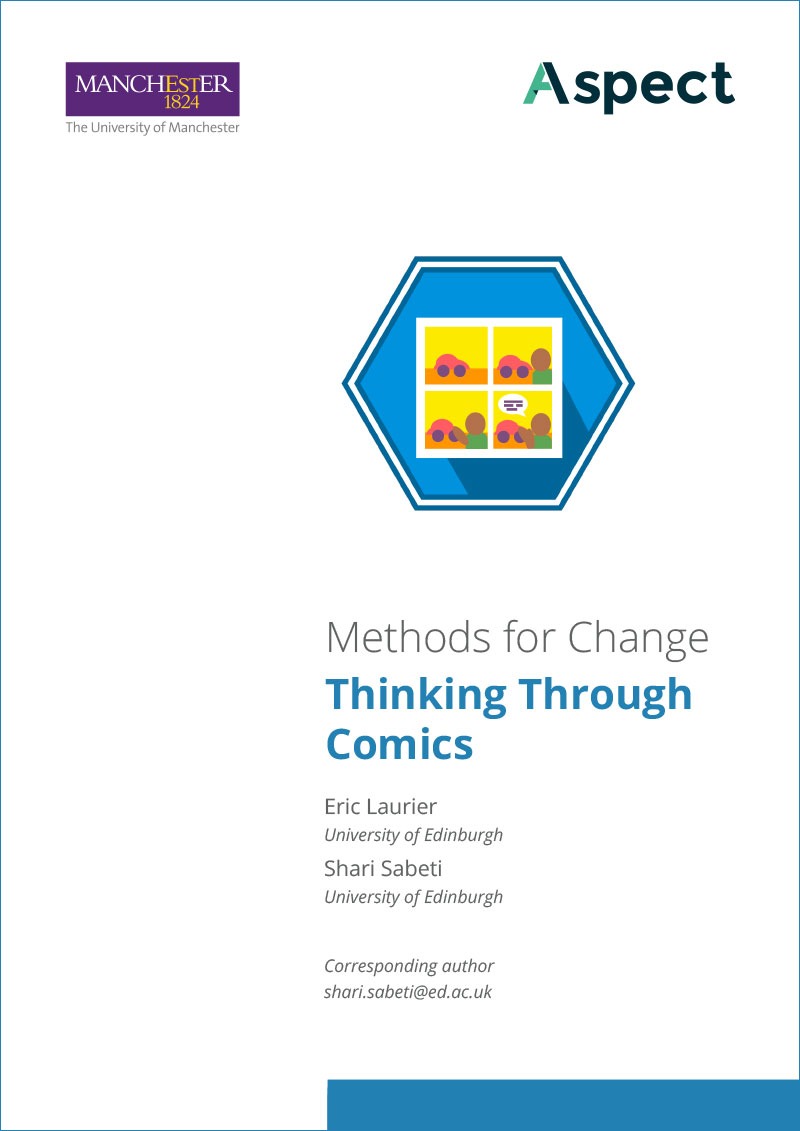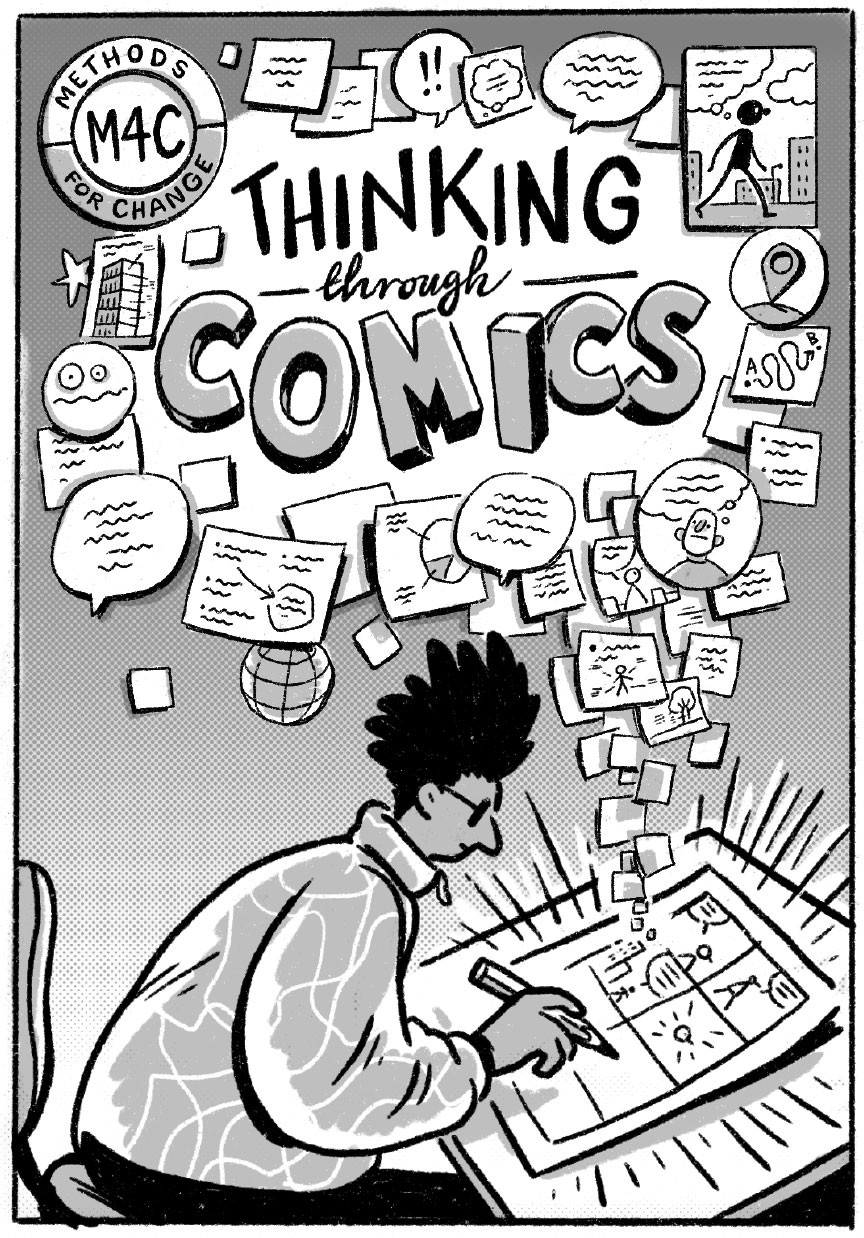Thinking Through Comics is a versatile methodology which involves integrating the process of comic-making into the doing of research at different stages. It is a growing field and is occasionally called ‘comics-based research’ (see Kuttner et al. 2021).
Comics can be described as a combination of text and image, often contained in panels, which are juxtaposed in a sequence to tell a story. The interplay between text and image, panels within and across pages, and the telling of multiple stories means comics are also sophisticated structures with potential for anyone embarking on an inquiry. However, because of their association with popular culture and younger audiences, comics are often used by researchers at the end point of research to communicate ideas to non-academic audiences. Thinking Through Comics, in contrast, situates the comic as a way of thinking throughout the research process: from the collection of data to its analysis and the presentation of findings. Thinking through Comics and doing research are therefore concurrent activities. This methodology entails two stages: firstly, setting out with the frame of a comic-making in mind at the beginning of any data collection. Starting this way leads to the collection of particular kinds of materials, materials that in the first stage share much in common with other research methodologies. For example, visual materials such as photographs, film and drawings. In the second stage, it involves using the mechanisms of comics as a mode of thinking through, and with, the materials collected. Merging data collection and analysis with comic book praxis has the potential for distinct perspectives and insights into experience, interaction, environments and processes. At these stages, it can either be the researcher, the participants, or a collaborating artist who is making a comic book. The comic books can also be made through a variety of different modes: drawing, collaging, or through online programmes.





